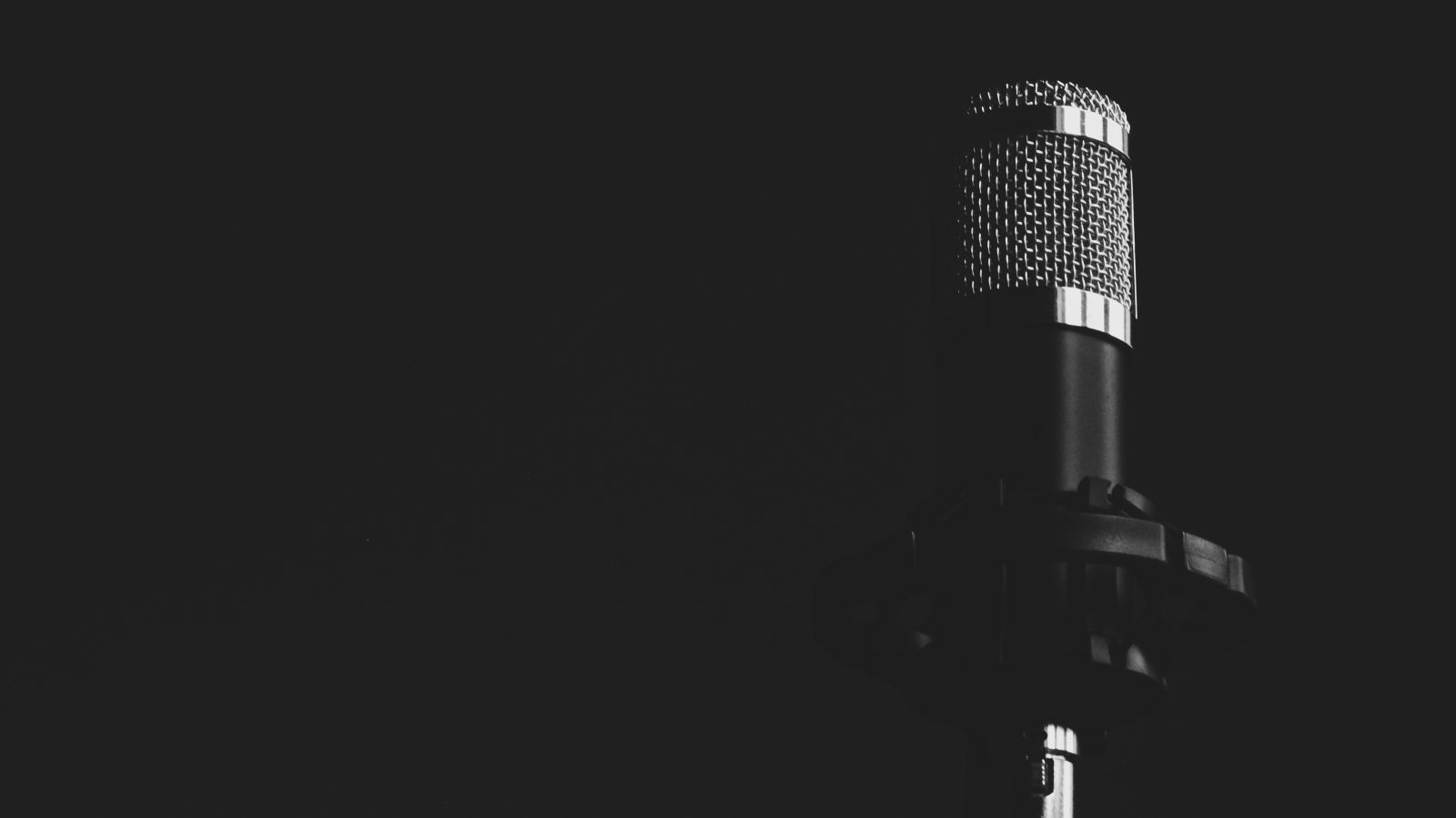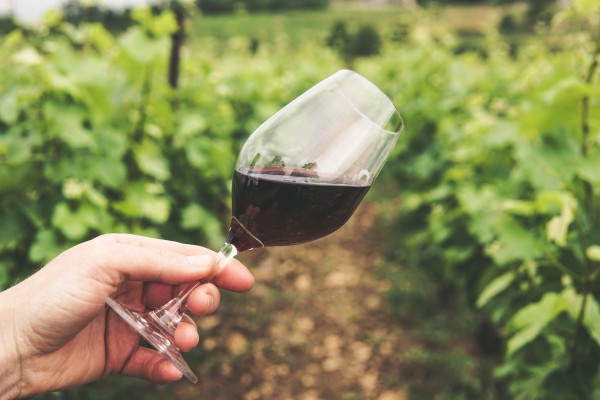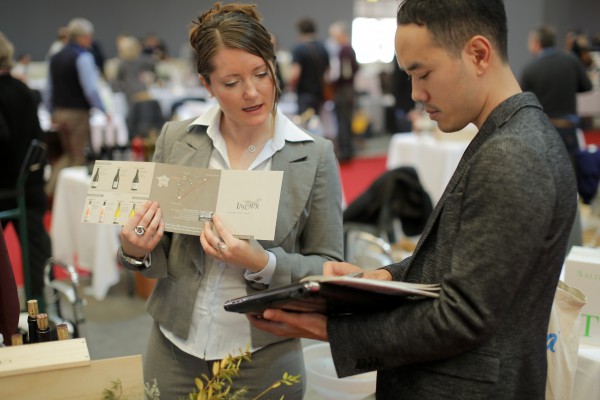
We interviewed producers and traders of organic wine, exhibitors at Millésime Bio and / or those awarded the best medals in the Challenge Millésime Bio contest. To read or watch their interviews, click on the "To read" or "To watch" section in the menu bar, then choose by names.
Interviews from the 2018 edition of Millésime Bio
Jessica Zanette - Digital marketing and PR Perlage, Italy (Veneto)
"Millésime Bio is a fair perfectly suited for organic wineries"
Certified organic for over 30 years now, Perlage is a leading Italian reference in organic wine, reputed worldwide, notably for its Prosecco.
Millésime Bio: Please introduce briefly Perlage Wines
We are a family business. The adventure all began when the 7 Nardi brothers, with father Tiziano and mother Afra, decided to convert one of their oldest vineyards, Riva Moretta, to organic farming. This was an ethical choice: for the Nardi family it was extremely important to protect both the environment and human health. The choice was a difficult one at that time, because there was no research or studies on organic farming, nothing at all.
Millésime Bio: Italy is one of the main producers of organic wine in Europe, but what's the image of organic wine on the domestic market? I read that sales have increased a lot in recent years, is that right?Interest in organic wine has certainly increased on...
Stéphane Gass, Head Sommelier at Schwarzwaldstube*** restaurant (Traube Tonbach ***** Superior hotel), Germany
"Millésime Bio: excellent organisation, wine served at perfect temperature, fresh, young talent just waiting to be discovered, direct contact with wine-growers..."
The “Table of the Black Forest” gourmet restaurant alone makes a trip to Hotel Traube Tonbach worth the visit! Three-star Michelin rated for the last 20 years and holder of a maximum number of points (19.5) in the Gault & Millau, this restaurant is one of Europe’s finest. The Schwarzwaldstube is the only restaurant in Germany to have had three-star Michelin rating for over 20 years.
Millésime Bio: Does organic wine have an important place in your wine list?
Yes. 65 % of the wines on our wine list are organic.
Millésime Bio: Germany is a traditional and vital market for organic wines...the world’s first importer even! How has the image of organic wine evolved in the eyes of your customers? Is the organic label important?
Considering that the most prestigious estates are generally either organic or under conversion, this incites customers to order these wines in restaurants; the organic label is...
Alain Chabanon - Domaine Alain Chabanon, France (Languedoc)
"I have loved the simplicity of the fair from the word go, and now I am finding it really useful! The fair is all about sharing experience rather than showing-off!"
Alain Chabanon recently celebrated the 25th anniversary of his estate. A faithful follower of Millésime Bio since the start, also 25 years ago, spotlighting this great wine-maker, whose wines are served in some of the world’s top restaurants, in Paris, London, New York or Bangkok, was an obvious choice…
Millésime Bio: the 2017 vintage has been very tough for wine-growers… for the Alain Chabanon estate too?
For us, it has indeed been very complex! Mother Nature first sent us a very severe frost followed by several successive summer heat waves…amazingly though, despite this, our grapes were not just healthy but also balanced! Vinification went very smoothly too. So, in short, a low harvest, but promising wines!
Millésime Bio: you have been working in organic agriculture for more than twenty years now, and have been a regular attendee at Millésime Bio for as long… Can you explain why you are so faithful to the fair? What are you looking forward to at the next edition of Millésime Bio?
My first visit to Millésime Bio, Narbonne, actually happened rather...
Juan Pelizzatti - Chakana Wines, Argentina (Mendoza)
Chakana Wines owns 120 hectares, with several estates and appellations in the region of Mendoza, Argentina, including the country’s largest organic-certified estate, Nuna Vineyard (80 hectares). Owner Juan Pelizzatti is very active engaged in the promotion of organic and biodynamic viticulture, and will host the 7th South American Biodynamic Viticulture Forum in November 2017.
Millésime Bio: Please give us a brief introduction to Chakana Wines
Juan Pelizzatti: Chakana was established in 2002 in Agrelo, Lujan de Cuyo, the most traditional area of Mendoza, Argentina. We now own 120 hectares in total, in the best regions of Mendoza, including Paraje, Altamira and Gualtallary in the Uco Valley. In 2012, we started a conversion process for organic and biodynamic viticulture in order to recover and preserve soil biology and the natural balance of vines. We aim to organically certify all our vineyards.
Millésime Bio: Can you tell us more about organic development in Argentina?
Compared to Europe or North America, the organic wine movement in Argentina is still in its infancy. Today, in Argentina, there are about 30 organically certified wineries, representing around 1% of total wine production. There’s still much left to be done. Things are developing fast, however, and more and more sommeliers, wine enthusiasts and...
Maxime Gibrat, Sales Director - Sarment Wines, P.R. China
"Organic wine is increasingly appreciated by Chinese connoisseurs. This is due to pollution issues, increasing importance placed on personal well-being, and holidays in Europe."
Millésime Bio: Please give us a brief presentation of Sarment Wines and your position therein
Founded in 2012, Sarment has quickly grown from a private Sommelier and wine merchant to become a global lifestyle services provider that connects our network of clients (private, corporate or trade) with exclusive experiences. Sarment’s suite of experiential services covers wines, dining, events, and gifting. I am Sales Manager for China and head a team of 25 salespersons.
Millésime Bio: The Chinese vineyard is the world’s second largest (800,000 hectares!), and around 2% of surface area (16,000 hectares) is organic, according to the IFOAM. Is there currently an acceleration in conversions to organic production?
Chinese wine production has grown greatly and represents at least 75 % of wines consumed. Quality is improving but the...

